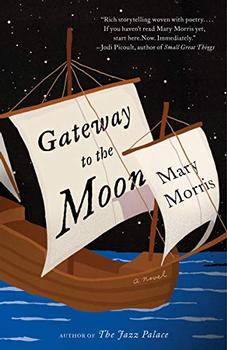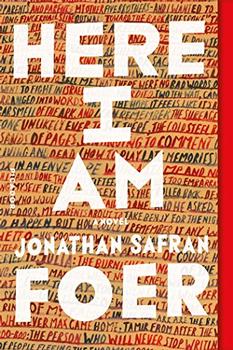Summary | Excerpt | Reading Guide | Reviews | Beyond the book | Read-Alikes | Genres & Themes | Author Bio

A forbidden love story set on the tropical island of St. Thomas, about the extraordinary woman who gave birth to painter Camille Pissarro - the Father of Impressionism.
From the New York Times bestselling author of The Dovekeepers and The Museum of Extraordinary Things: a forbidden love story set on the tropical island of St. Thomas about the extraordinary woman who gave birth to painter Camille Pissarro - the Father of Impressionism.
Growing up on idyllic St. Thomas in the early 1800s, Rachel dreams of life in faraway Paris. Rachel's mother, a pillar of their small refugee community of Jews who escaped the Inquisition, has never forgiven her daughter for being a difficult girl who refuses to live by the rules. Growing up, Rachel's salvation is their maid Adelle's belief in her strengths, and her deep, life-long friendship with Jestine, Adelle's daughter. But Rachel's life is not her own. She is married off to a widower with three children to save her father's business. When her husband dies suddenly and his handsome, much younger nephew, Frédérick, arrives from France to settle the estate, Rachel seizes her own life story, beginning a defiant, passionate love affair that sparks a scandal that affects all of her family, including her favorite son, who will become one of the greatest artists of France.
Building on the triumphs of The Dovekeepers and The Museum of Extraordinary Things, set in a world of almost unimaginable beauty, The Marriage of Opposites showcases the beloved, bestselling Alice Hoffman at the height of her considerable powers. Once forgotten to history, the marriage of Rachel and Frédérick is a story that is as unforgettable as it is remarkable.
CHAPTER ONE
We Followed the Turtles
CHARLOTTE AMALIE, ST. THOMAS 1807
RACHEL POMIÉ
I always left my window open at night, despite the warnings I'd been given. I rarely did as I was told. According to my mother, this had been my response to life ever since my birth, for it took three days for me to arrive in the world. As a child I did not sleep through the night, and I certainly didn't follow any rules. But I was a girl who knew what I wanted.
Other people shivered when the rains came and were chilled to the bone, but I longed for cold weather. Nights on our island were pitch dark, the air fragrant and heavy, perfect for dreaming. As soon as the light began to fade it was possible to hear the swift footsteps of lizards rattling through the leaves and the hum of the gnats as they came through the windows. Inside our stucco houses, we slept within tents made of thick white netting, meant to keep mosquitoes away. In rain barrels of drinking water we kept small fish that would...
Without a lot of action, the novel is driven by complex and convincing relationships, and reading about the characters' cares and perceptions is quite involving. Much of the story is told in the first person, authentically relaying Rachel's interactions. The author's ability to convey Rachel's voice is a true highlight, particularly in the realistic way the character's tone ages...continued
Full Review
 (729 words)
(729 words)
(Reviewed by Kim Kovacs).
Much of The Marriage of Opposites is set in the town of Charlotte Amalie, St. Thomas in the Virgin Islands, and concerns the main characters' Jewish heritage and traditions.
The Virgin Islands were "discovered" by Christopher Columbus on his second voyage in 1493. Many European explorers visited the islands in the ensuing decades and as a result the area was claimed by several nations during the 15th and 16th centuries. St. Thomas was settled by the Danish West India Company in 1672, placing the island under control of the Dutch government and encouraging the first European settlement.
A small number of Jewish settlers arrived on the island of St. Thomas in 1655 as Europeans began colonizing the Virgin Islands. Many of these new ...

If you liked The Marriage of Opposites, try these:

by Mary Morris
Published 2019
From award-winning novelist Mary Morris comes the remarkable story of a remote New Mexican town coming to grips with a dark history it never imagined.

by Jonathan Safran Foer
Published 2017
A monumental new novel from the bestselling author of Everything Is Illuminated and Extremely Loud and Incredibly Close.




Sometimes I think we're alone. Sometimes I think we're not. In either case, the thought is staggering.
Click Here to find out who said this, as well as discovering other famous literary quotes!